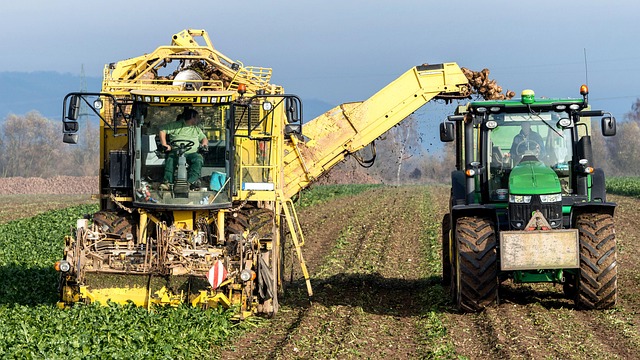Revolutionizing Agriculture: The Path to Sustainable Arable Farming
In recent years, the need for sustainable arable farming has become increasingly vital. As our global population continues to rise, so does the demand for food. However, conventional farming practices often lead to soil degradation, water scarcity, and heightened greenhouse gas emissions. Farmers and communities alike are now seeking methods that will not only ensure food security but also protect our planet for future generations.
Transport Sustainability in Agriculture
One of the most pivotal aspects of sustainable arable farming is enhancing the sustainability of transport within the agricultural supply chain. The journey from farm to table significantly impacts our environment, with transportation accounting for a large portion of greenhouse gas emissions. By integrating local food systems and utilizing biofuels, we can reduce these emissions while supporting our local economies.
Farmers are increasingly adopting eco-friendly transportation methods, such as electric vehicles and biodiesel options, to minimize their carbon footprint. Additionally, developing robust infrastructure for local markets can ensure that goods travel shorter distances, thus lessening environmental impact. This transition not only promotes sustainable arable farming but also fosters connections between consumers and producers, emphasizing the importance of buying locally.
Rural Development and Sustainable Practices
Rural communities often bear the brunt of agricultural challenges, from economic instability to environmental degradation. Sustainable arable farming plays a crucial role in rural development by promoting job creation, enhancing community resilience, and securing food sources. When farmers implement sustainable practices, they can often increase their yields while preserving valuable resources.
Moreover, innovative technologies like precision agriculture are empowering farmers to manage their resources more efficiently. By utilizing data-driven insights, producers can identify the specific needs of their crops, reducing waste and conserving water. This technological advancement not only bolsters productivity but also significantly contributes to rural development by creating a sustainable model that can be passed down through generations.
The path to sustainable arable farming is not merely a trend, but a necessary evolution in the way we approach agriculture. It signifies a collaborative effort where sustainability and innovation intersect, ultimately benefiting our environment, rural communities, and, most importantly, future generations. Embracing these changes in transport sustainability and rural development is essential for cultivating a healthier planet and advancing the agricultural sector.
In this transformative landscape, each of us has a role to play. By advocating for local produce and supporting sustainable practices, we can contribute to a farming future that prioritizes the health of our land and communities. Let us move forward together, embracing the revolution in agriculture that champions sustainability for all.




